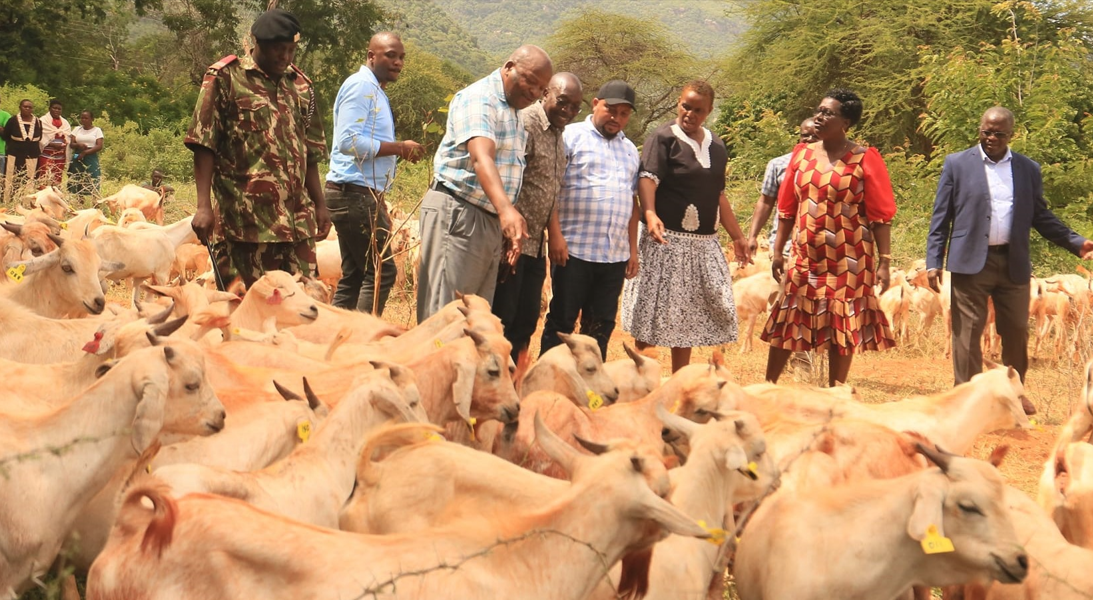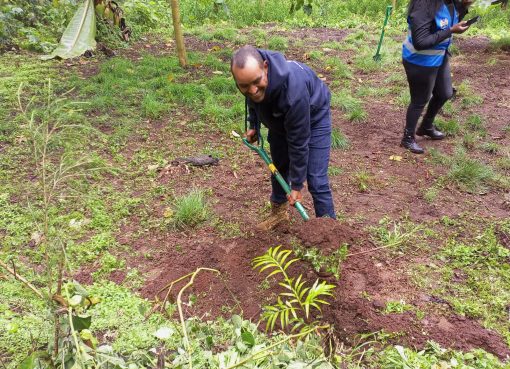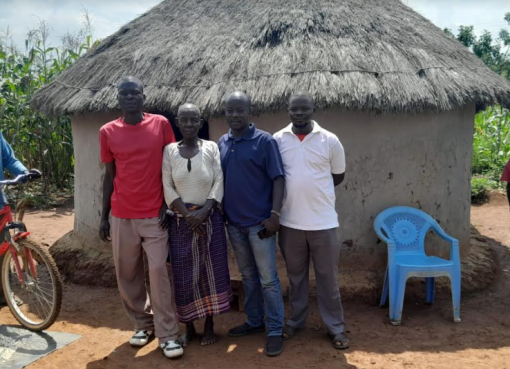The United Nations (UN) Food and Agriculture Organization (FAO) has partnered with Taita Taveta County to distribute 2,250 hybrid Gala Goats to small-scale farmers in arid and semi-arid areas in a drive aimed at restoring food security through building resilience and climate-smart farming practices.
Speaking during the distribution exercise at Mbololo in Voi Sub-County, lead FAO representative, Dr. Barrack Okoba, said climate change is pushing communities into the extremes of hunger and poverty and the only way to push back is by training, equipping, and empowering the grassroots small farmer with the best agricultural practices.
Dr. Okoba lauded the program as a vessel to lift the masses from poverty by giving them a sustainable economic activity that is not dependent on erratic weather and unpredictable climate change.
“This project is a step in the right direction in ensuring the small rural farmer is no longer depending on the unreliable rains for food but has a smart alternative that is resilient and suitable in the era of unpredictable climate change,” said Dr. Okoba.
Gala hybrid goats, according to Martin Oyindo, Voi sub-county livestock officer, are not new in the dry parts of Taita Taveta as past experiments on the breed have yielded promising results in terms of resilience, productivity, and economic advantages.
“The Gala hybrid goat is not new to this region. Our past experiments have shown the breed to be resilient, highly productive, and with many economic advantages to the farmer,” said Oyindo.
According to Oyindo, the Gala hybrid goat is highly suited to the arid and semi-arid conditions of many parts of the county with two annual reproductive cycles, drinking half a liter of water a day, consuming two kilos of feed daily, goat kids gaining maturity weight within a year, and resistance to diseases and pests.
In his expert view, Oyindo believes that the distribution of the hybrid Gala goats to small-scale farmers is a result-guaranteed approach to eliminating food insecurity and empowering the grassroots community in a bottom-up economic model as envisioned in the agenda of the national government.
“When you look at the merits of this goat breed, it is a result-proof approach for stemming out hunger and abject poverty at the grassroots and being in sync with the national government’s agenda of a bottom-up economic model,” said Oyindo.
Leading the county delegation during the distribution exercise, County Deputy Governor, Christine Saru Kilalo, called on small-scale livestock farmers to embrace the initiative and implement smart agricultural practices in a move to address food insecurity, improve the quality of local breeds, and push back the adverse effects of climate change.
A beneficiary of the initiative from Mbololo, Elizabeth Lukeleki, said the Gala goats will rescue her and others from the yokes of depending on faltering rains and the unproductive traditional goat breeds; two factors that are the biggest drivers for food insecurity and extreme poverty levels in dry areas.
“These goats are like a lifeline to me and other beneficiaries as we will no longer be at the mercy of failing rains and unproductive local goat breeds; things which have pushed us to hunger and poverty,” said Elizabeth.
In collaboration with the national and county government, FAO has several completed and undergoing projects pivoted on building climate-smart and resilient communities with an endgame of combating food insecurity and blunting the effects of climate change.
By Arnold Linga Masila





